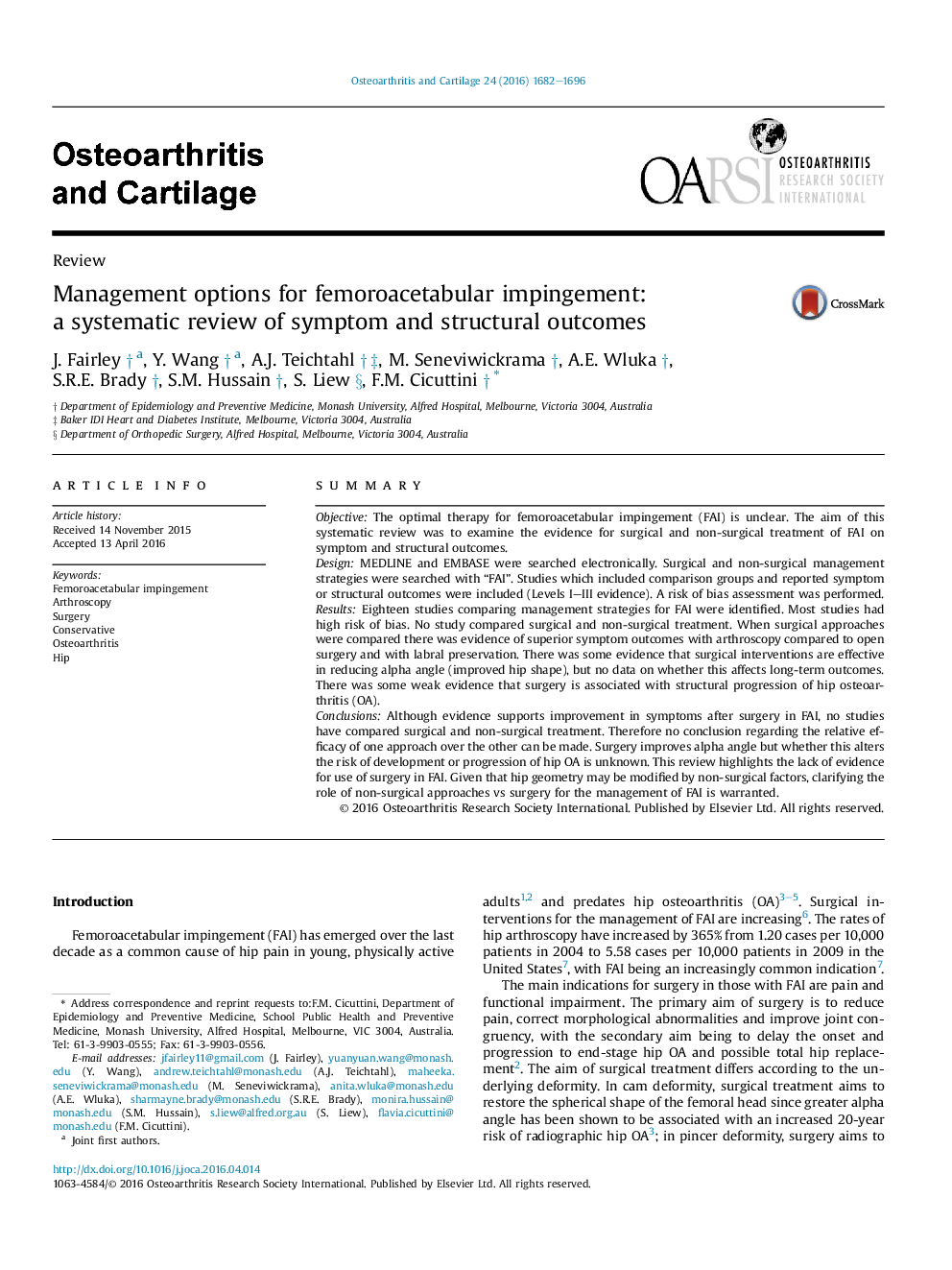| Article ID | Journal | Published Year | Pages | File Type |
|---|---|---|---|---|
| 5669256 | Osteoarthritis and Cartilage | 2016 | 15 Pages |
SummaryObjectiveThe optimal therapy for femoroacetabular impingement (FAI) is unclear. The aim of this systematic review was to examine the evidence for surgical and non-surgical treatment of FAI on symptom and structural outcomes.DesignMEDLINE and EMBASE were searched electronically. Surgical and non-surgical management strategies were searched with “FAI”. Studies which included comparison groups and reported symptom or structural outcomes were included (Levels I-III evidence). A risk of bias assessment was performed.ResultsEighteen studies comparing management strategies for FAI were identified. Most studies had high risk of bias. No study compared surgical and non-surgical treatment. When surgical approaches were compared there was evidence of superior symptom outcomes with arthroscopy compared to open surgery and with labral preservation. There was some evidence that surgical interventions are effective in reducing alpha angle (improved hip shape), but no data on whether this affects long-term outcomes. There was some weak evidence that surgery is associated with structural progression of hip osteoarthritis (OA).ConclusionsAlthough evidence supports improvement in symptoms after surgery in FAI, no studies have compared surgical and non-surgical treatment. Therefore no conclusion regarding the relative efficacy of one approach over the other can be made. Surgery improves alpha angle but whether this alters the risk of development or progression of hip OA is unknown. This review highlights the lack of evidence for use of surgery in FAI. Given that hip geometry may be modified by non-surgical factors, clarifying the role of non-surgical approaches vs surgery for the management of FAI is warranted.
